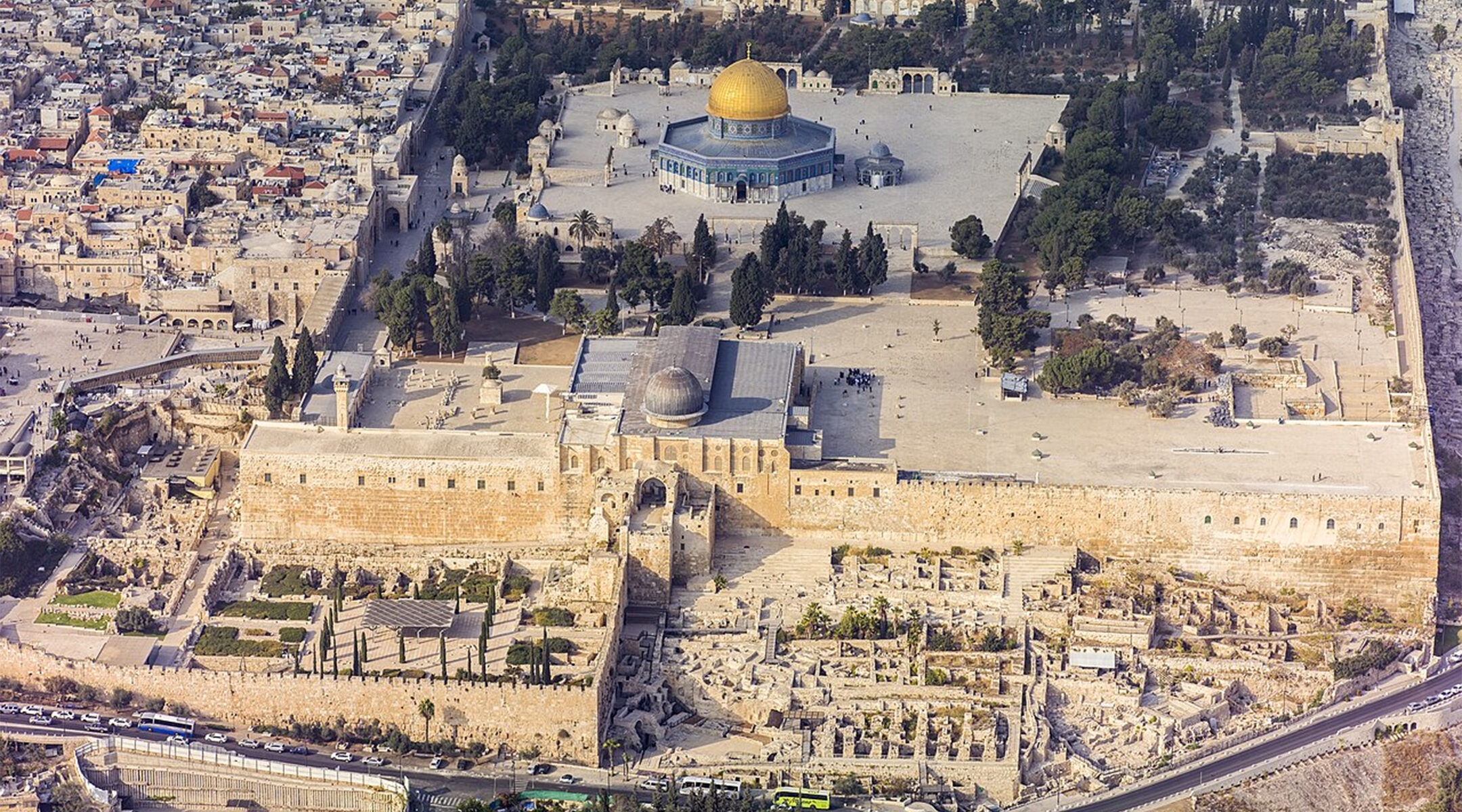(JTA) — Israeli Prime Minister Naftali Bennett claimed, contrary to current policy, that Jews had “freedom of worship” on the Temple Mount in Jerusalem, as more than 1,000 Jews ascended to the holy site on a traditional Jewish day of mourning.
The Temple Mount is Judaism’s holiest site, where the two Jewish Holy Temples once stood. It is also revered by Muslims as the Noble Sanctuary, and is the site of the Al-Aqsa Mosque. It is controlled by Israel but administered by the Islamic Waqf, a joint Jordanian-Palestinian religious body. Visiting hours for Jews at the Temple Mount are restricted, and Jews are prohibited from praying there — an arrangement that religious Jewish activists have protested for years.
The Temple Mount has frequently been a flashpoint for violent conflict between Palestinians and Israelis. In April and May, during the Muslim holy month of Ramadan, Israeli police and Palestinian protesters repeatedly clashed at the mount, leading to hundreds of protesters and dozens of police getting injured. On Sunday, there were also clashes between protesters and police on the Mount.
The clashes in the spring led to fatal interethnic Jewish-Arab violence in cities across Israel, the worst the country has seen in decades, as well as an 11-day conflict between Israel and Hamas in Gaza in which more than 230 Palestinians and 12 Israelis were killed.
On Sunday, Bennett appeared to say in a tweet that Jews did have the right to pray on the mount. His statement came on Tisha B’Av, a Jewish fast day that commemorates the destruction of the two Holy Temples on the mount in antiquity.
In the statement, Bennett thanked public security officials for “managing the events on the Temple Mount with responsibility and consideration, while maintaining freedom of worship for Jews on the Mount.”
Bennett also “emphasized that freedom of worship on the Temple Mount will be fully preserved for Muslims as well, who will soon be marking the fast of the Day of Arafah and the Eid al-Adha,” which begin Sunday night and Monday night, respectively.
According to the Times of Israel, a spokesperson for Public Security Minister Omer Barlev said that there is, in fact, “no change in policy” at the site.
Allowing Jewish prayer on the Temple Mount would amount to a major change at perhaps the most sensitive location in Jerusalem. The Temple Mount, situated in Jerusalem’s Old City, holds deep symbolism for many Israelis and Palestinians alike.
Israel captured the Old City from Jordan in the 1967 Six Day War and views it as part of its undivided capital. Adjacent to the Temple Mount is the Western Wall, Judaism’s holiest prayer site. Palestinians see eastern Jerusalem, including the Old City and Al-Aqsa, as the future capital of an independent Palestinian state. The site is also the location of the Dome of the Rock, an Islamic shrine.
Changes to the status quo on the Temple Mount — or even rumors of such changes — have sparked violence in Jerusalem. In 2015, Israel’s banning of an Islamist protest group from the mount led to violent clashes at the holy site and a months-long wave of Palestinian stabbing attacks.
On Sunday, one of Bennett’s coalition partners, the Arab-Israeli Islamist Raam Party, condemned the Jewish visits to the mount, saying that “the people of [Raam] and the activists of the Islamic Movement will defend the sanctity of Al-Aqsa Mosque with their bodies,” according to Haaretz. Jordan, Egypt and the Palestinian Authority also condemned the visits, with Palestinian Authority President Mahmoud Abbas calling them “a dangerous Israeli escalation.”
JTA has documented Jewish history in real-time for over a century. Keep our journalism strong by joining us in supporting independent, award-winning reporting.






